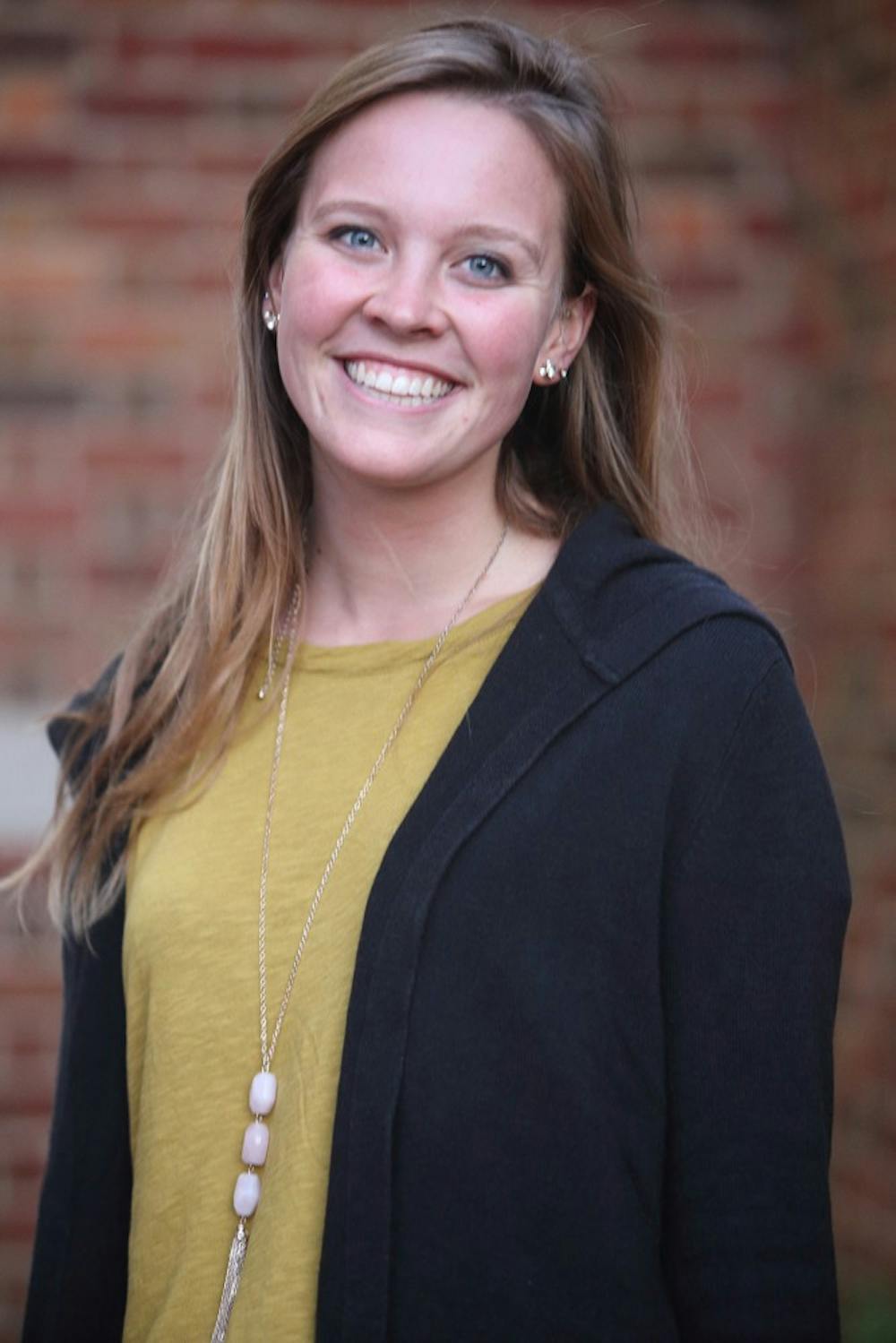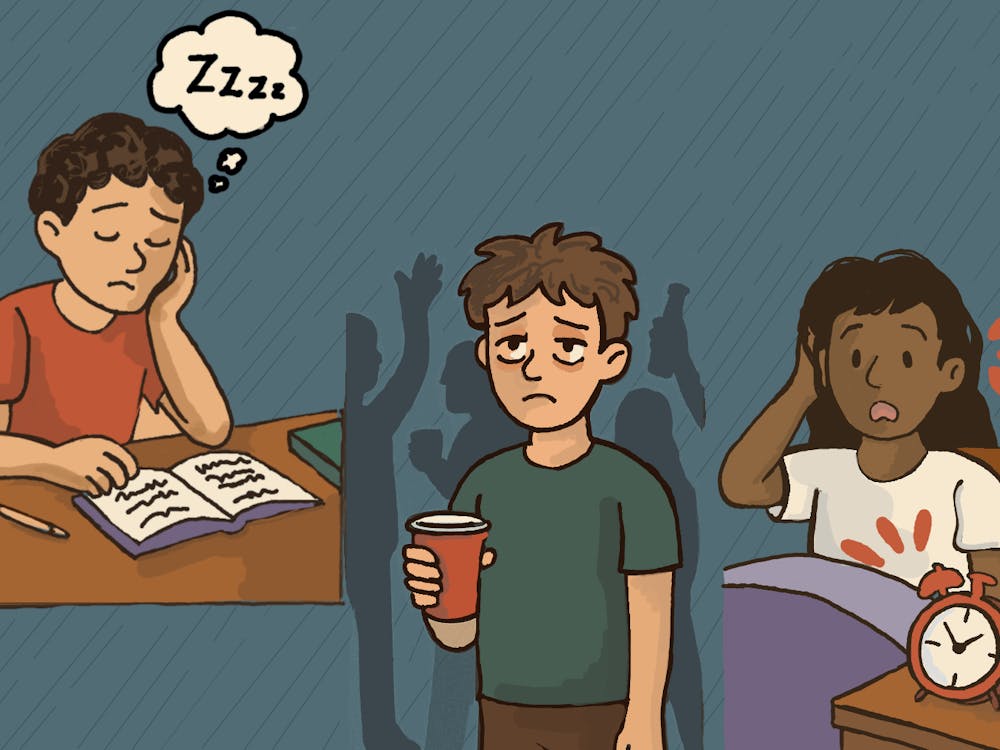It was 5 a.m. at a fish market, of all places.
I was talking to a friend about the logistics of said fish market — why hold it all, especially if it’s for free? Who’s responsible for it? How did it start? — when a tall, bearded, round-eyeglass-wearing stranger joined in on the conversation. Within moments, Tall Stranger and I were walking ahead, excitedly discussing how this tourist attraction might work while being herded through the bustling, early-morning streets of Tsukiji, Tokyo. We had only spoken for three minutes, barely made it through the what’s-your-name’s and where’re-you-from’s of an introduction before we found ourselves in a long line for allegedly spectacular and potentially overpriced breakfast sushi.
It was a brief but great encounter.
He asked me to join him for sushi, but for a handful of reasons I had to say no. I left the line, then ran back to get his number. He smiled. “You came back,” he said and suggested soon thereafter we meet up at a hedgehog café downtown in Shibuya to talk more over coffee that afternoon. But, a minor detail: my flight was supposed to leave right at the time he proposed we meet. I suggested an earlier time, but his schedule was packed.
It’s a sappy sentimental line, I know, but as I was boarding my plane, I kept wondering if I should have done something differently. I barely knew this person — we had talked for three minutes, maybe – and yet I felt totally intrigued, taken by him. We had ended our short-lived back-and-forth by sharing future travel itineraries — unfortunately, no overlap – and toasted to the possibility of our paths crossing again sometime in the future.
But would they? I was fully aware of the fact that I barely knew this person. But I still very much wanted to know him more —to talk and to hear his story. In only three minutes, he had fascinated me, left me disappointed that three minutes may be all I would ever know.
I thought to myself, “I should have tried to change my flight, I should have stayed for breakfast sushi, I should have done something. Something bold, something rash but undoubtedly exciting, something spontaneous, something story-like and full of life.”
My friend who had watched the whole meet cute unfold kept telling me, unprompted, that she couldn’t help but believe we would meet again. “It’ll happen,” she encouraged decisively. “I have no doubt.”
I, however, did have doubts. While there was a whisper within me that wanted oh-so-terribly to believe that we would somehow spontaneously meet again, a voice of reason was beating against my brain, swearing that, “no, no, no, it wouldn’t happen, it couldn’t happen. The world doesn’t work like that, and it’s easier to believe it doesn’t so you don’t find yourself disappointed when this hoped-for reunion never comes.”
It is both easy and uncomfortable to fall prey to this mental battle between reason and belief. Is it better to give weight and time to your more optimistic side, to trust in the fledgling and admittedly futile hope that a story — whatever that story may be — continues? Or, to be painfully rational, purely realistic?
This, of course, is relevant to more things than my own petty encounters with strangers. While abroad, I’ve had unreliable access to internet, and, with it, unreliable access to news. But I catch snippets of whatever’s going on in the U.S. and the world, and with each headline I’m met with a similarly difficult choice — do I fully and faithfully believe each word I read, or do I question the disquieting headlines and hope for something more well-intentioned and less painfully pessimistic?
Regarding the latter point, I’ve found solace in the words of a favorite politics professor of mine, who reminded me the other day of the importance to “always assume good intent,” even when it’s temptingly difficult not to do so.
What it comes down to, I think, is choosing whether or not you want to believe in the possibility that a story may be a bit longer — or more nuanced — than it initially seems. I’m not always sure which is the better option. Even in the situation of my Tall Stranger and me, where, no matter how silly and stupid and strange it may sound, I want fully to believe that we will somehow meet again, but I understand and expect that the actual chances of that are beyond unlikely.
Not too long after my fleeting fish-market meet-up, I found myself on a bus in Beijing, listening to a guide named Eilee wrap up our two-day tour of the city. “The world really is quite small,” she reminded us during her goodbye, “and there really is no reason why we shouldn’t meet again. How does it happen that we are on the same bus now? Why should it not be that we are on the same bus again in the future?”
Things far crazier than unexpected reunions happen each day, so why not give ourselves some room to believe even ever-so-slightly in the possibility of a longer story? To Eilee, to the interesting people I’ve met only briefly thus far this semester, to the Tall Stranger from the fish market: I hope our story is longer than it now seems, and I hope we really do find ourselves on the same bus again, some surprising day soon.







